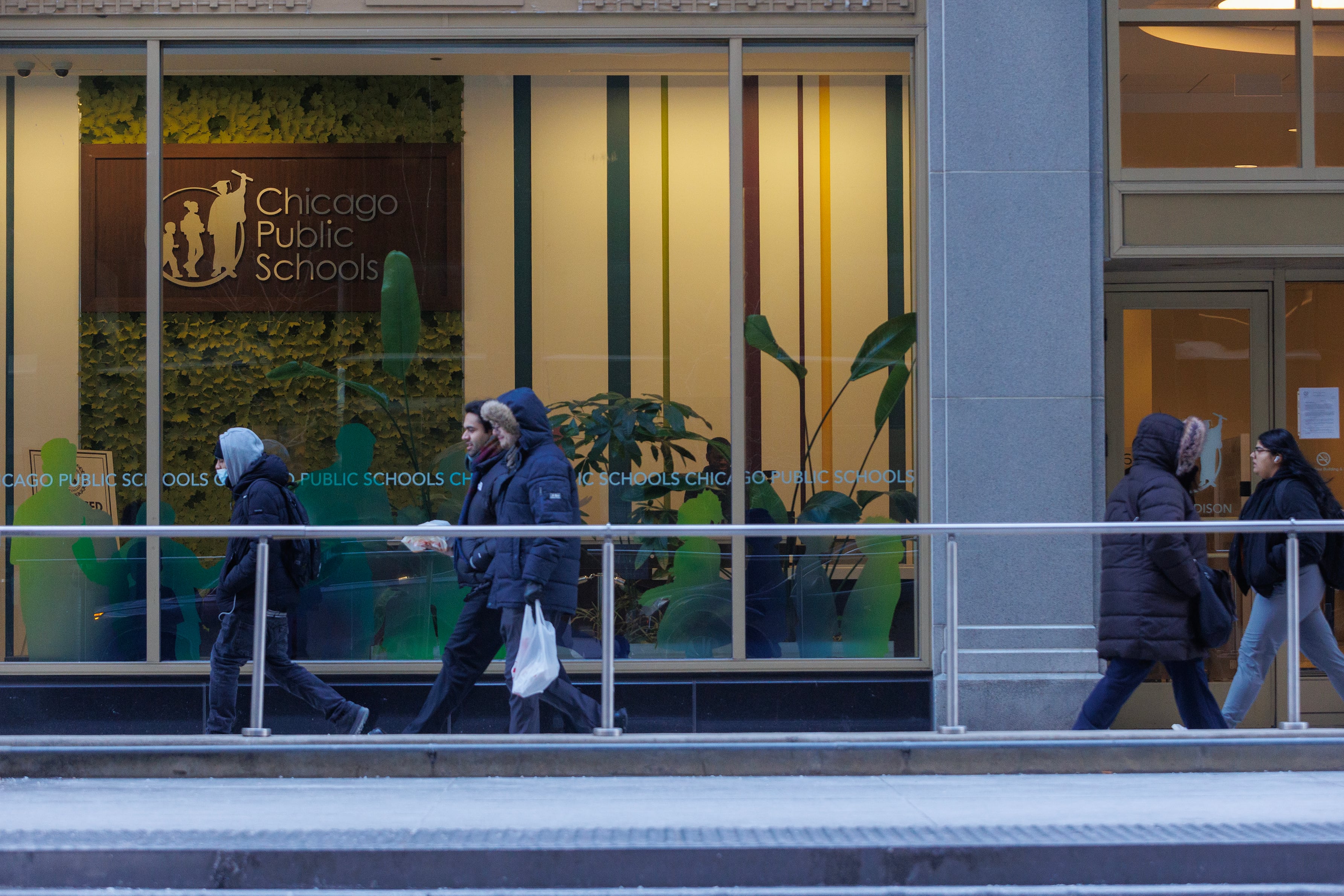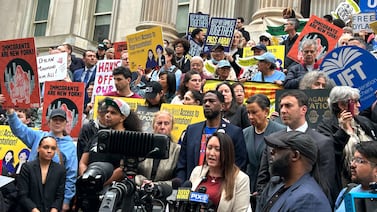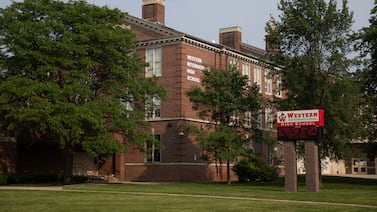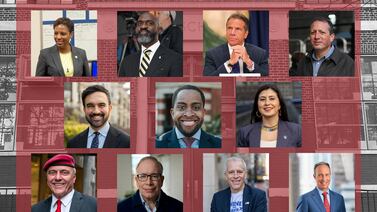Sign up for Chalkbeat Chicago’s free daily newsletter to keep up with the latest news on Chicago Public Schools.
If Chicago Public Schools were to tackle all the building repairs and upgrade projects on its list, that would cost $14.4 billion. Just the ones the district considers “critical”? About $3 billion.
District officials highlighted these eye-popping price tags — which haven’t budged since the fall of 2023 — on Tuesday at the second of five virtual and in-person hearings CPS is hosting this month to get community input as it develops its capital budget for the 2025-26 school year.
Maintaining CPS’s 520 campuses and other facilities is no small task: The average age of CPS’ roughly 800 buildings is more than 85 years, and dozens of schools were built before 1900. Chicago’s oldest public school building was built in 1874.
Over the years, officials have readily acknowledged that they tend to put off many projects because they can’t afford them, often focusing on the most urgently needed repairs — an approach that sometimes means having to tackle costlier projects down the line as building issues escalate. For that reason, officials stressed at Tuesday’s virtual hearing, the $3 billion figure for pressing repairs on leaky roofs, malfunctioning heating and cooling systems, and other issues is poised to grow.
“That’s just to bring our facilities to a state of good repair,” said Ivan Hansen, the district’s chief facilities officer.
The district is facing these costs at a time of rising financial pressures: the end of federal COVID aid, ballooning structural budget deficits in the coming years, and the risk of losing funding from the Trump administration.
At the Tuesday hearing, attendees could submit questions to CPS officials and were invited to fill out a survey at the end. Only seven people logged in.
In the current year, the district earmarked $611 million for facilities spending in its $9.9 billion overall budget. The previous year, district officials had budgeted an unusually low $155 million for buildings and put many projects on hold so they could craft a longer-term infrastructure plan. Officials said Tuesday the district has spent more than $4 billion on capital projects since 2016.
“While the needs continue to be consistent and significant,” Hansen said, “the funding varies on an annual basis.”
At the hearing, district officials explained that in recent years, CPS has used two metrics to steer dollars to certain projects and schools first. One is the equity index, which combines metrics on the neighborhoods where a school’s students live, its student demographics and historical funding for facilities projects. The other is a facility condition index.
CPS said this is the first year the district is hosting in-person hearings to get input on its capital budget.
All the capital hearings will be live-streamed on CPS’ YouTube Channel, and the presentation materials are available on the Capital Plan Community Meetings website in English, Spanish, Chinese, Polish, Urdu, and Arabic. Residents can also provide input through online survey.
The upcoming budget hearings are:
- 5:30 p.m. April 15, in-person at the CPS Garfield Park Administrative Offices, 2651 W Washington Blvd., in English and Spanish
- 5:30 p.m. April 17, virtual in Spanish only
- 3:30 p.m. April 19, in-person at the CPS Colman Administrative Offices, 4640 S. State St., in English and Spanish
Correction: A previous version of this story misspelled the name of Ivan Hansen, the district’s chief facilities officer.
Mila Koumpilova is Chalkbeat Chicago’s senior reporter covering Chicago Public Schools. Contact Mila at mkoumpilova@chalkbeat.org.






